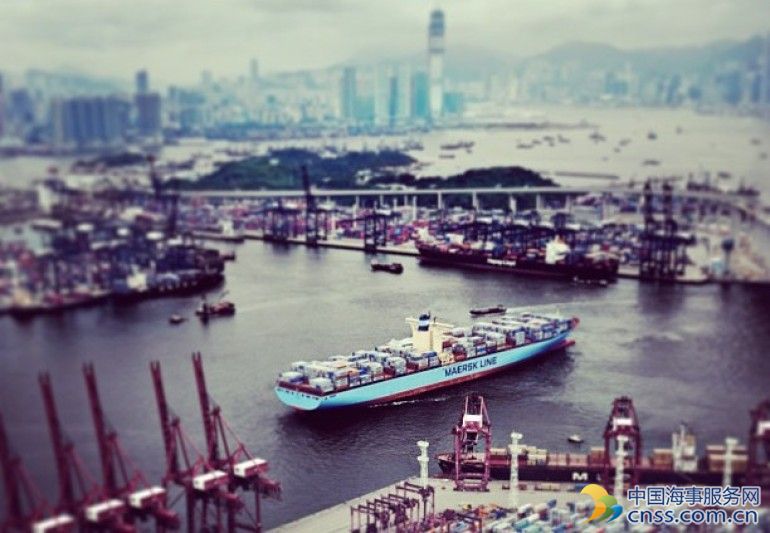Hong Kong’s cramped talent pool

The maritime sector in the Special Administrative Region is stymied by a lack of qualified people.
Human resources remain a source of huge concern and constant debate for Hong Kong’s shipping community. It is a strange juxtaposition given the crowded nature of the place and its overt links to the sea, but shipping has fallen off the radar for most young job seekers today.
Our survey of 250 top names in the local maritime community found 62% of respondents were unable to find sufficient talent in Hong Kong to satisfy their business needs.
The tight pool of available talent has been a source of worry for the city’s shipping private sector for more than a decade, but efforts to alleviate the problem have not been met wholeheartedly by government.
Tertiary education courses are scarce. Apart from the longstanding Hong Kong Polytechnic’s shipping and transport logistics diploma, BSc and Masters program, the only notable effort by Hong Kong’s universities to offer curriculum and degree programs within the maritime cluster has been at City University and its LL.M in maritime law.
“Much effort has been expended by the senior members of the Hong Kong shipowning community to promote a career in the maritime industry but, sadly, the response has been lukewarm at best,” says Kenneth Koo, the chairman of shipowner TCC Group. His firm’s source of recruiting talent in areas such as commercial shipmanagement has been mainly from Shanghai Maritime University while other owners have recruited extensively from Dalian Maritime University as well.
“Support from government still stubbornly focuses upon shipping being equated to port services and logistics,” Koo laments.
Nowadays, with Hong Kong’s economy switching from manufacturing to a service industry and then towards quick money making careers in the financial sector and real estate sector means the local youth simply do not have the long term view necessary to nurture the qualities and core values necessary to realise a career in shipping, Koo says.
Martin Rowe, a veteran Hong Kong shipbroker with Clarksons Platou, has similar views to Koo, saying: “The local government and universities need to work harder to raise awareness of shipping as a career and to provide suitable courses that don’t include the words ‘and Logistics’ in the title.”
Matthew Cornelius, recruitment team leader for recruitment firm Spinnaker Global’s Asian operations, notes that the situation in the former British colony would be a lot worse were it not for the private sector working to make shipping visible as a career option. “The Hong Kong Shipowners Association has for a long time been pushing hard to promote shipping as a career and should be applauded,” Cornelius says.
Michael Nagler, who runs Noble Chartering, says the talent pool in Hong Kong is “very small”. He will be relocating his division of Noble to Singapore next year, where there is, he thinks, a better-equipped workforce.
“Hong Kong is no different to any other global locations,” argues Rory McGuire from recruitment firm, Flagship Management. “The talent pool is generally small and is not helped by owners and managers identifying office-based staff as the principal source of cost reduction.”
Matt Conway, who heads up recruitment firm Faststream’s Asian business, notes that even in the current downturn HR demands in Hong Kong remain vigorous.
“We are still seeing a strong demand for good, experienced professionals in key technical and commercial positions,” Conway says.
It is not just owners who are struggling to find the right employees. Keith Mullin, the head of lube supplier Gulf Oil Marine, says it is not easy to find experienced marine supply operations resources in Hong Kong, something Kishore Rajvanshy, the managing director of shipmanager Fleet Management also picks up on.
Dismissing the naysayers, Tim Huxley, ceo of shipping line Wah Kwong, insists: “Local talent is abundant.” Huxley is concerned, however, at the declining English standards amongst the Special Administrative Region’s youth.
Another proponent of the local workforce is the ceo of the city’s largest shipmanager. “Hong Kong employees are hard working and highly productive,” says Anglo-Eastern Univan’s Bjorn Hojgaard.
The debate continues with local shipowners in dialogue with government on how to remedy the situation.
HEADLINES
- Do shipping markets want Biden or Trump for the win?
- All 18 crew safe after fire on Japanese-owned tanker off Singapore
- Singapore launching $44m co-investment initiative for maritime tech start-ups
- Cosco debuts Global Shipping Industry Chain Cooperation Initiative
- US warns of more shipping sanctions
- China continues seaport consolidation as Dalian offer goes unconditional